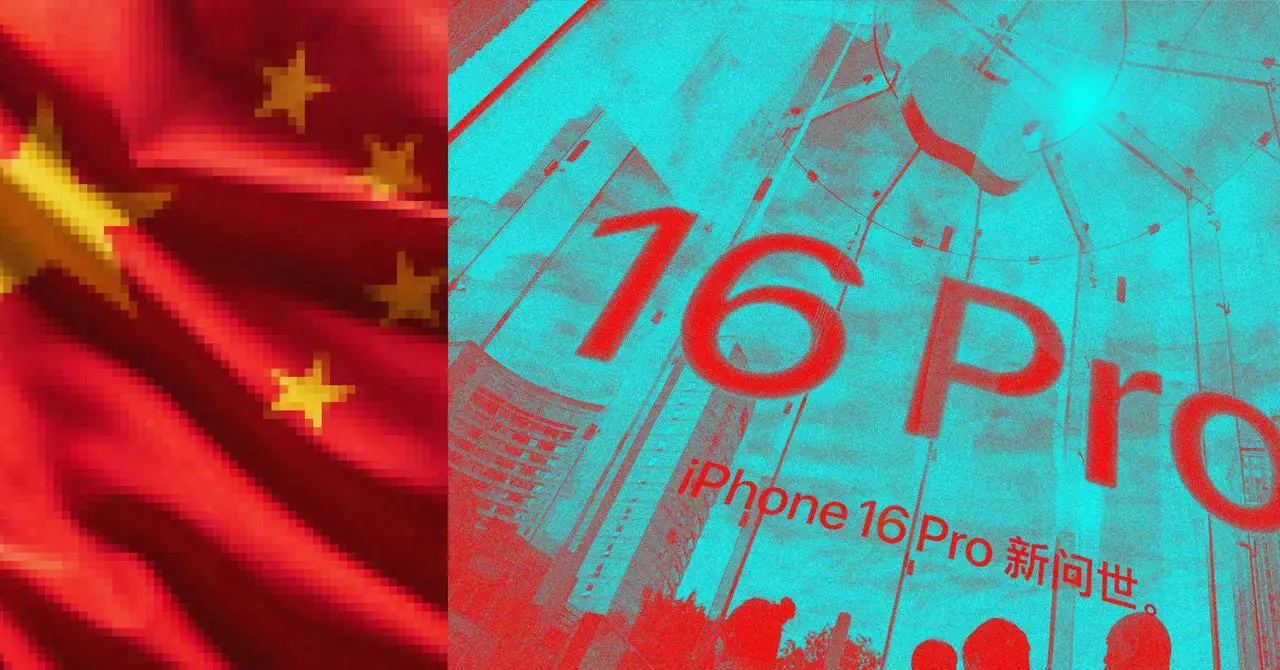The relationship between technology companies and government regulations frequently enters murky waters, especially when it comes to operating in foreign territories. For Apple, a giant in the tech world, navigating the demands of the Chinese government requires a careful balancing act, particularly in light of the nation’s increasingly stringent rules around artificial intelligence (AI) and data privacy. As the expectations for compliance intensify, Apple’s positioning becomes more precarious, raising questions about the implications on both a corporate and geopolitical level.
Since the early 2000s, gradual shifts in the technological landscape have altered the way multinational companies engage with the markets they operate in. In China, the stakes are higher than ever, as regulatory bodies impose stringent conditions for AI integration. Recent requirements mandate that algorithms directing public interactions must be registered with government officials, creating an additional layer of scrutiny that Western tech firms must navigate. According to industry experts, this procedure may include extensive documentation outlining coding practices and operational protocols. Many firms may hesitate to comply with such rigorous demands, potentially limiting innovation and progress.
The power dynamics between China and Western nations have shifted dramatically over the past decade. Rather than simply following trends set by Western companies, China is increasingly asserting its dominance in various technological fields. As highlighted by Tan, there is a palpable sense that the Chinese authorities are setting the stage for a new technological order where Western companies must align with local regulations if they wish to thrive. This continued evolution reveals an ongoing challenge: how can global companies remain competitive while adhering to such complex and demanding regulations?
While some aspects of China’s AI regulations align with responsible governance, others evoke concerns about censorship and freedom of expression. The measures’ vagueness—particularly around deep synthesis content, which encompasses generative AI—raises critical questions about the nature of information allowed and the ethical implications of such control. China’s regulations stipulate that AI outputs must adhere to a politically sanctioned direction and must avoid topics that could disrupt social and economic order. This means that any AI, such as a seemingly innocuous virtual assistant, could potentially be engineered to avoid discussing sensitive political topics, including Tibet or Hong Kong.
For a company like Apple, the stakes are particularly high given its extensive presence in the Chinese market. The ramifications of controlling the narratives that its technologies disseminate are substantial. The ability of an AI to engage in a wide spectrum of dialogue becomes constrained, making one ponder the ethical implications of running such a limited program simply to remain in good standing with regulators. This raises the question: at what point does compliance with government mandates interfere with a company’s ethical standards and commitment to free expression?
As Apple integrates its own generative AI into its products, it must confront the perception of being overly accommodating to the Chinese government’s expectations. Scholars and analysts have raised alarms about the risks involved in providing a custom AI that aligns so closely with state interests, particularly for a company based in a nation that prides itself on championing free speech. Critics contend that by developing AI technologies that inherently comply with stringent governmental controls, Apple runs the risk of becoming an unwilling participant in a larger narrative driven by the Communist Party of China (CCP).
The implications extend beyond corporate strategy; they resonate deeply with the integrity of the technology sector as a whole. The approval of 188 large language models (LLMs) in China by August 2024 demonstrates that local tech firms are adapting and succeeding under these strict guidelines. Apple’s move to potentially integrate these models raises relevant concerns about the principles of transparency and ethical governance in technology. The path Apple has chosen may shape its brand narrative and public perception for years to come.
Navigating the labyrinth of regulations in China is no small feat, and for Apple, the stakes are high. The company’s ability to balance compliance with ethical considerations will play a crucial role in its future. As it remains tethered to a complex geopolitical landscape, Apple must carefully assess whether its pursuit of profits and market presence is worth the potential ethical compromises. The dual nature of regulations in China offers both opportunities and challenges, forcing Apple to tread the delicate line between innovation, compliance, and the core values that define its brand on the global stage.


Leave a Reply